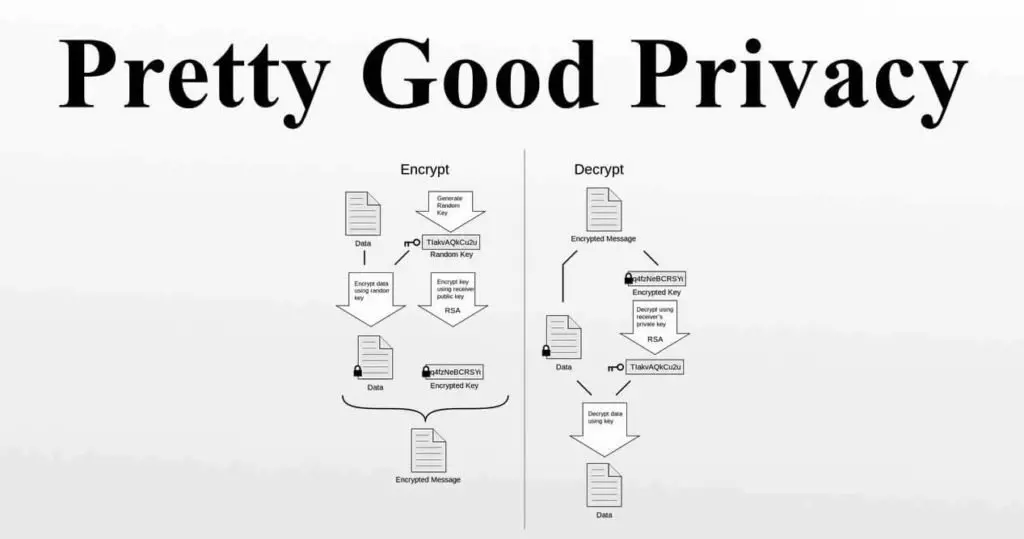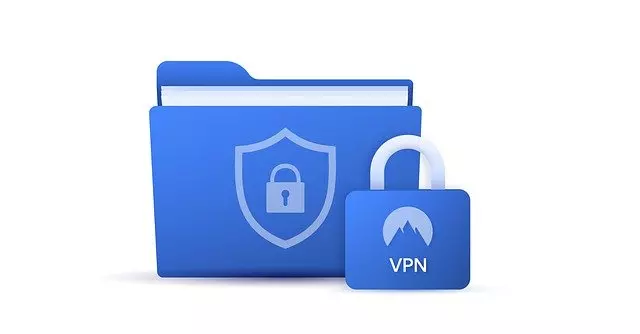Pretty Good Privacy (PGP) is public key encryption is a popular program used to encrypt and decrypt email over the Internet, as well as it gives cryptographic privacy and authentication for online communication. It becomes the most popular standard for email encryption.
How does PGP actually work? Pretty Good Privacy (PGP) encryption uses a mix of data compression, hashing, and public-key cryptography. It also uses symmetric and asymmetric keys to encrypt data that is transferred across networks.
Pretty Good Privacy combines features of private and public-key cryptography. Each step uses a different algorithm, and each public key is associated with a username and an email address. A software engineer named Phil Zimmermann created PGP back in 1991.
He was an anti-nuclear activist and wanted a way to transfer information securely over the Internet. Zimmermann got into trouble with the US government in 1993 because Pretty Good Privacy (PGP traveled) international waters and reached a vast number of countries around the globe, violating US export restrictions for cryptographic software.
Pretty Good Privacy (PGP) is built on what’s called a public key system, in which a recipient has a publicly-known key essentially a very long number — that senders use to encrypt emails they receive. In order to decrypt these emails, the recipient must have her own private key linked to the public one.
Only the recipient knows the private key, which protects the privacy of the message. Pretty Good Privacy (PGP) comes in two public key versions — Rivest-Shamir-Adleman (RSA) and Diffie-Hellman. The RSA version, for which PGP must pay a license fee to RSA, uses the IDEA algorithm to generate a short key for the entire message and RSA to encrypt the short key.
The Diffie-Hellman version uses the CAST algorithm for the short key to encrypt the message and the Diffie-Hellman algorithm to encrypt the short key.
BENEFITS OF PGP ENCRYPTION
- Sensitive information is always protected through Pretty Good Privacy. Pretty Good Privacy cannot be stolen or viewed by others on the internet. It assures that the information that is sent or received was not modified in transmission and that files were not changed without your knowledge.
- Information can be shared securely with others including groups of users and entire departments.
- You can be certain who the email is from and who it is for. Pretty Good Privacy verifies the sender of the information to ensure that the email was not intercepted by a third party.
- Your secure emails and messages cannot be penetrated by hackers or infected by email attacks if you are using Pretty Good Privacy.
- Others cannot recover sensitive messages or files once you have deleted them.
- PGP encryption software is very easy to learn how to use. With virtually no training, users are able to learn how to use it right away.
Why is Pretty Good Privacy (PGP) used?
Some Bitcoin trading platforms use PGP to help secure user accounts like Kraken. It’s largely used to protect sensitive information involved with financial transactions, especially those that are still emerging — and to prevent cryptocurrency from being stolen.








